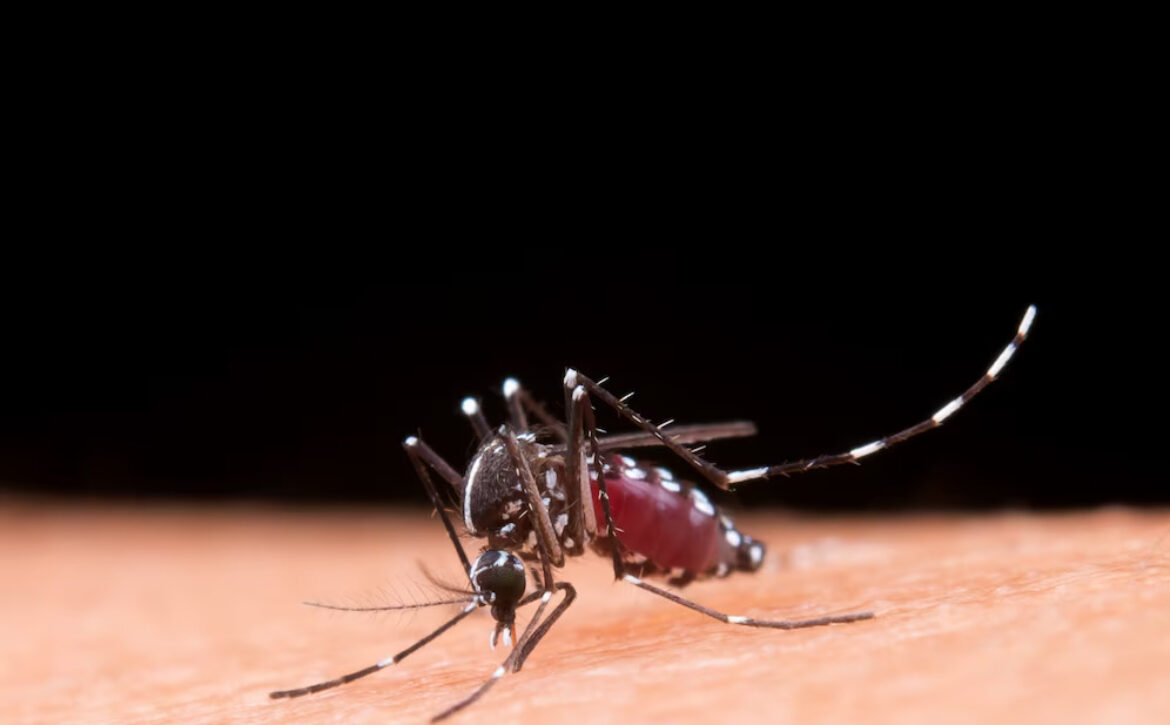Dengue Fever
What is Dengue?
Dengue viruses are spread to people through the bite of an infected Aedes species (Ae. aegypti or Ae. albopictus) mosquito.
Areas with Risk of Dengue
The disease is common in many popular tourist destinations in the Caribbean (including Puerto Rico), Central and South America, Southeast Asia, and the Pacific Islands. In the United States, local cases and limited spread of dengue does occur periodically in some states with hot, humid climates and Aedes mosquitoes.
Symptoms
If symptoms occur, they usually begin 4–10 days after infection and last for 2–7 days. Symptoms may include:
- high fever (40°C/104°F)
- severe headache
- pain behind the eyes
- muscle and joint pains
- nausea , vomiting
- swollen glands
- rash.
Individuals who are infected for the second time are at greater risk of severe dengue.
Symptoms of severe dengue
Watch for signs and symptoms of severe dengue. Warning signs usually begin in the 24–48 hours after your fever has gone away.
Immediately go to a local clinic or emergency room if you or a family member has any of the following symptoms.
- Belly pain, tenderness
- Vomiting (at least 3 times in 24 hours )
- Bleeding from the nose or gums
- Vomiting blood, or blood in the stool
- Feeling tired, restless, or irritable
- being very thirsty
- pale and cold skin
Symptoms of dengue can become severe within a few hours. Severe dengue is a medical emergency.
If you have any warning signs, see a healthcare provider or go to the emergency room immediately.
Severe dengue is a medical emergency. It requires immediate medical care at a clinic or hospital.
If you are traveling, find health care abroad.
Diagnosis
A blood test is the only way to confirm the diagnosis. As dengue fever symptoms in its early stages are very similar to symptoms of other viral illnesses such as chikungunya virus and zika virus infection, in addition to observing the patient’s symptoms and reviewing their medical history, the doctor will carry out the following tests to accurately diagnose dengue fever:
- Complete Blood Count (CBC) to look for any anomalies in blood composition, including hemoglobin, leukocyte, platelets, and blood concentration
- NS1 Ag
Treatment
There is no specific medicine to treat dengue.
Treat the symptoms of dengue and see your healthcare provider.
- See a healthcare provider if you develop a fever or have symptoms of dengue. Tell him or her about your travel.
- Rest as much as possible.
- Take acetaminophen (also known as paracetamol outside of the United States) to control fever and relieve pain.
- Do not take aspirin or ibuprofen!
Drink plenty of fluids to stay hydrated. Drink water or drinks with added electrolytes.
Recovery
After receiving treatment patients will have an appetite; some patients may have a red rash with small white circles.
Prevention
- Controlling the mosquito breeding areas
- Empty and clean every water container at least once a week
- To kill mosquito lavae put 1 gm. of Temephos sand ( Abate ) per 10litres of water in every container
- Remove, empty or cover used tyres or jars that collect water
- Put sand in Flowerpot saucers to absorb the water
- Use mosquito repellant on exposed skin and dress protectively especially during the daytime.
- Use bed-nets and keep unscreened windows and door closed.
Avoid dark, stuffy, dingy rooms


